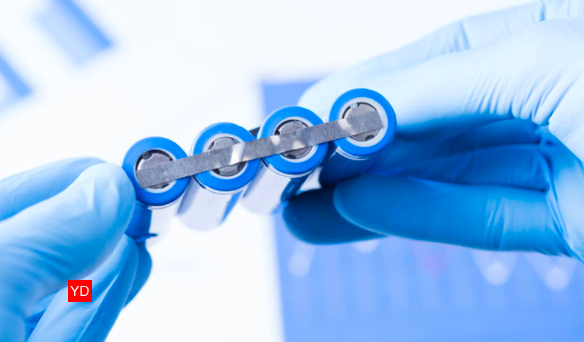Soaring requirement for electric vehicles as well as energy storage applications in India are necessary drivers for the government of India to commit to serious investment in lithium-ion battery manufacturing in Budget 2022-23, finds a new report from JMK Research and the Institute for Energy Economics and Financial Analysis (IEEFA).
India’s transition to a future powered by clean, affordable, and reliable renewable energy is underway, yet critical battery storage is still an expensive imported technology.
Report co-author Vibhuti Garg told IANS battery storage can help India transition by storing excess renewable energy when it is not needed and then discharging it when it is.
“In addition, batteries can also provide essential grid services,” says Vibhuti.
“In Budget 2022-23, the government must offer essential funding for domestic manufacturing of lithium-ion batteries (LiB) as well as, for instance, offering duty rebates in sourcing the raw materials for LiB manufacturing.”
India is expected to be the world’s largest automotive market by 2026. The report finds automotive applications will account for 90 per cent of LiB demand, with annual capacity growing nearly 50-fold — from 2.3 gigawatt hours (GWh) in financial year (FY) 2021 to 104GWh by FY 2030.
The growth for non-automotive applications is almost as spectacular, from 0.3GWh to 12GWh in the same period, applied to telecom towers, data centres, grid-scale renewable energy integration, and rooftop solar, as well as newer areas, including material handling and power tools.
The second phase of the Faster Adoption and Manufacturing of Hybrid and EV scheme (FAME-II), which aims to increase adoption of EVs and specifically electric two- and three-wheelers, is driving battery localization requirements and the setting up of battery assembly plants in India.
The PLI Advanced Chemistry Cell (ACC) scheme is a step towards local cell manufacturing.
Furthermore, the government’s renewable energy targets will make stationary storage a significant contributor to this growth, says co-author of the report, Jyoti Gulia.
“Adding 450 gigawatts of renewables by 2030 will need 136 gigawatt hours of battery storage. India is poised to become a key LiB consumer,” she says.
The report also highlights the challenges for battery pack and cell manufacturing in India, primarily the reliance on imports for key raw materials, the lack of safety standards in place, and the dearth of local technological know-how.
“End-use customers are wary of the quality of local assemblers’ packs, battery management systems (BMS), and the associated safety issues. There are lucrative opportunities, but current and potential players must be prepared for massive investments and low profit margins,” says co-author, Neha Gupta.
LiB technology has superseded lead-acid batteries in mobile and stationary applications alike, its growth encouraged in part by government of India support allowing 100 per cent foreign direct investment (FDI) and mandating domestic manufacture of battery packs.
The government further boosted manufacturing via the Production-Linked Incentive (PLI) scheme, as part of which, investments of over Rs 450,000 m ($6,120 m) for 50GWh of capacity is planned.
India has huge cost opportunities in terms of cheap labour and power. Cell manufacturing costs in India, as of 2020, were the lowest ($92.8/kWh) when compared with the US, European nations, and even China ($98.2/kWh) and South Korea ($98.1/kWh).
Because of the lack of availability of key minerals and metals in India, the report also suggests battery recycling as a solution to meet surging LiB demand, recovering 80-90 per cent of lithium, cobalt, nickel, manganese and graphite and putting India on the path to a circular economy.

























Add Comment